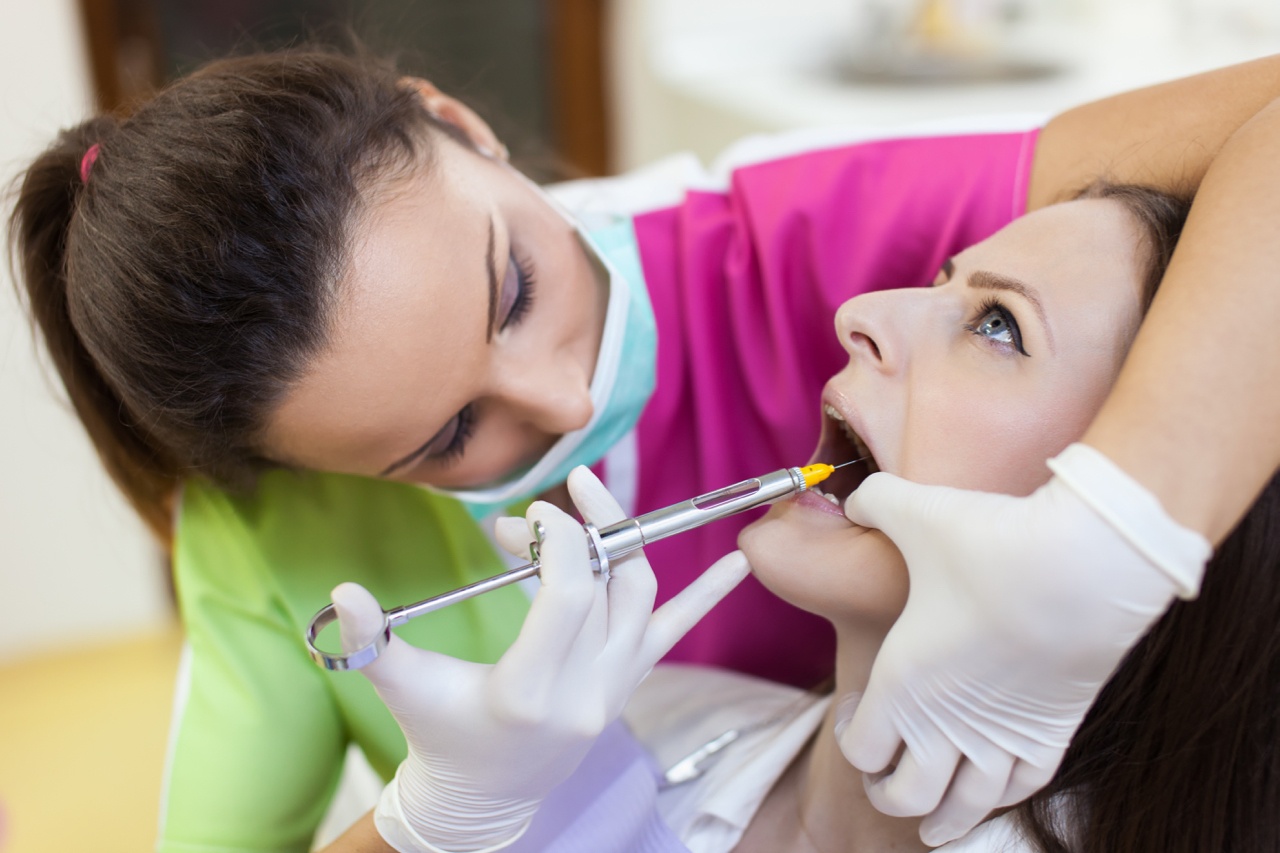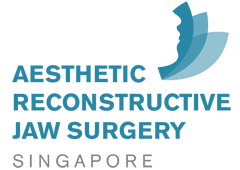Share this
Implant Dentistry; General Dentist or Specialist?
on May 29, 2019
 There has been much debate in recent weeks within the dental profession about the competency of dentists to do certain procedures. The issue has attracted a lively debate amongst various dental organizations. The Ministry of Health and the Singapore Dental Council has begun seeking feedback on “Better competency development for safe and quality dental care for patients”. Two of the oft-cited procedures that were considered to be of higher risk and may need additional training and certification are implant dentistry and wisdom tooth surgery. While this debate is on-going who should patients requiring such service go to? We will address the issue of implant dentistry first.
There has been much debate in recent weeks within the dental profession about the competency of dentists to do certain procedures. The issue has attracted a lively debate amongst various dental organizations. The Ministry of Health and the Singapore Dental Council has begun seeking feedback on “Better competency development for safe and quality dental care for patients”. Two of the oft-cited procedures that were considered to be of higher risk and may need additional training and certification are implant dentistry and wisdom tooth surgery. While this debate is on-going who should patients requiring such service go to? We will address the issue of implant dentistry first.
Implant dentistry
Today, it is well accepted that the treatment of choice for replacement of a missing tooth in a healthy patient with good jaw bone structure is a dental implant. Dental implantology as practiced today has gone through more than fifty years of development. Research has consistently showed a success rate of about 95-98% over the long term. However, it is not one of the core competencies taught in most dental schools around the world. Most dental schools will teach the theoretical aspects of implant dentistry and a few may teach the restorative part but not the surgical part.
So how do dentists learn implant dentistry?
There are two stages of dental implant treatment. The first stage involves surgically inserting the implant, which is a titanium screw, into the jaw bone. The implant is usually left to integrate with the jaw bone for about two months. Thereafter, the second stage involves fabricating a crown over the implant.
The specialist route
The surgical stage is within the curriculum of the specialist training programs of oral & maxillofacial surgery as well as that of periodontology. The restorative part is covered under the specialist training program of prosthodontics. Specialist training programs are usually full-time three-year residencies. Within the milieu of a residency, there are rigorous didactic programs as well as supervised clinical training culminating in an examination with an external examiner. Graduates of such programs are usually awarded a Master of Dental Surgery (MDS) degree as certification of completion of specialist training.
However, that alone does not qualify one to be a specialist. To be registered as a specialist with the Singapore Dental Council, a minimum of two additional years of practice experience is needed, during which a candidate must log a prescribed range and number of cases with complete documentation and present for an exit examination. It is only upon passing this exit examination that one can register as a specialist with the Singapore Dental Council. At this point, he can be admitted as a Fellow of the Academy of Medicine (FAMS).
The minimum time that one needs from graduation from dental school to registration as a specialist is about 7-8 years. In most cases, it is much longer as application to specialist programs is competitive and some may have to apply for a few years before gaining admission. After completion of residency, curating cases for the log book to present for the exit examination may also take more than two years, depending on the case load in the hospital or clinic. Realistically, it usually takes about ten years after dental school.
Does it take that long to learn implant dentistry?
No, the specialist training programs involve other areas. Implant dentistry is only one component within respective programs. The other areas of training while not directly related to implant dentistry provides the breadth of knowledge and experience in identifying potential problems and managing complications.
How does a general dentist learn implant dentistry?
Way before the specialist training programs, implant dentistry in Singapore was pioneered by general dentists. 30 years ago, the sole lecture on implant dentistry in the undergraduate curriculum in our local dental school was given by a general dentist. The academics and specialists had not embraced the concept of dental implantology then. There were no formal training programs in Singapore and most of the dentists who were doing implants learn it by attending courses overseas. Various dental organizations also invited foreign experts to come to Singapore to conduct courses. Such courses obviously need the special armamentarium and implants for participants to practice on and so implant manufacturers or vendors are usually involved. This brought an element of commercialization of dental implant training that still persists today.
Today, there are four main routes to learning implant dentistry for general dentists. The commonest way is to attendshort coursesranging from a weekend to six weekends. These courses are usually conducted by implant manufacturers and vendors in conjunction with a local key opinion leader. Each course typically involves a series of lectures, some practice on dental models, observing a live surgery done by the course instructor and some may include a couple of cases to be done by the participants under the supervision of the course instructor. Lessons are usually conducted over the weekend so as not to interrupt the dentists’ daily work schedule. This is probably the most common path taken by a general dentist to attain proficiency in implant dentistry.
The second way is to enroll in a universitydistance learning course. There are quite a number of such courses conducted by universities and colleges from the United Kingdom, Australia, Europe and America. Such courses are usually more rigorous academically as completion usually lead to a either a diploma or master’s degree from the respective universities. However, supervision of the clinical training is often the challenging part for a distance learning course. A clinical course involving actually performing a procedure on a real patient cannot be effectively or safely conducted over the internet. Some programs engage external non-university local experts to provide the clinical supervision needed. In addition, some programs have a short residential portion where the participating dentists have to travel to the university for a one to two-week attachment. These programs are expensive and time intensive and the degrees and diplomas that they award are usually not recognized by the Singapore Dental Council due to their distance-learning nature. As such, few dentists in Singapore are interested in this route.
The third way is to do a part-time residential courseconducted by a recognized university. These courses are part-time but all teaching and practice components of the courses are conducted within the university’s dental school premises. Think of it was an executive MBA. As there is only one dental school in Singapore, there is only one such program available locally. This is a two-year part time course that has a rigorous didactic program and it also requires the course participants to treat a minimum number of implant patients in the university dental clinic under direct supervision. There are examinations every year and candidates who completed the program successfully will be awarded with a diploma that is recognized by the Singapore Dental Council. As expected, such a course is not only expensive in tuition, it is also costly in terms of opportunity cost as it requires a significant amount of time to be spent away from the dentists’ private clinics. The National University of Singapore has capacity to take six students a year for this course which started in 2007.
The fourth and most rigorous route is to do a full-time Master’s degreein implant dentistry. This is only available overseas and may take about 1-2 years. It is rare for a Singapore dentist to pursue such a course as the opportunity cost is the greatest.
Is a specialist always better than a general dentist?
Not necessarily. There are good general dentists and there are no-so-good specialists. Some general dentists dedicate the bulk of their time to implant dentistry for many years and some specialists may be busy with other aspects of their specialty and only spend a fraction of their time in implants. Training provides a good starting point, but a high level of skill takes many extra years to hone. Furthermore, with advances in technology, things that are learned years ago become obsolete and continuing education is critical. All factors being equal, a specialist may do a better job but then these factors are never equal.
The lazy way is to just choose a specialist because he would have definitely gone through formal training. But do bear in mind that if you go that route, you need two, not one specialist. This is because the specialists by definition, do not do both stages of the implant treatment. You will have one specialist, either an oral & maxillofacial surgeon or periodontist (i.e. gum specialist) doing the surgical insertion of the implant and the prosthodontist to do the second stage of placing a prosthetic tooth on the implant. (the question of what is the difference between the oral & maxillofacial surgeon and the periodontist will be addressed another time). Having two specialists also ensure a check and balance whereby one specialist checks on the work of the other critically. A team that works together over many years will spur each other to greater heights. Sometimes, the two specialists may be in the same clinic, but they may also be located at different premises.
Another way is to go to a general dentist who has a recognized qualification related to implant dentistry. That will also ensure that he has undergone some formal training. The advantage of going to a general dentist is that he can do both stages of the treatment and can also provide a more holistic service if other treatment is needed. If you already have a general dentist and he does not do implants, ask him for a referral. Ask the dentist if they themselves need an implant, who would they go to. That will be quite a good choice. Reputation is harder to earn than a qualification. Some dentists, be it specialist or general, have built up a reputation over many years of doing excellent work and that is more valuable than any qualification.
Are specialists more expensive than general dentists?
Probably, but not definitely. Do bear in mind that when you seek specialist treatment for implant dentistry, you are seeing two specialists. However, the economics of healthcare services is not solely determined by the doctor or dentist. There are other obligatory costs such as rental of the clinic premises, staff salaries, equipment used, consumable materials needed, etc. A general dentist practicing in an upmarket Orchard Road practice using premium material and highly trained assistants and master technicians will cost more than a specialist team working in a less posh clinic in the suburbs using non-premium brands and a local laboratory.
Are there times that specialist care is definitely needed?
Yes. There are definitely situations where the expertise of a specialist team is needed to deliver optimal results. While a diligent general dentist can avail himself to the same literature and know the state of the art techniques, without the practical experience and exposure within the milieu of a formal residency, he may not be in a position to exercise judgment of the suitability of a certain treatment plan for a particular patient.
A dentist can only diagnose and treatment plan based on what he knows and has experience in. Fortunately, the majority of cases are simple. And for simple cases, the difference in outcome that can be achieve between a specialist and a general dentist is insignificant. The obviously complex cases are also not a problem as most general dentists will spot them and refer accordingly. However, some complex cases can appear deceptively easy. This does not mean that the specialist does not make mistake and does not have failures or complications. It is only human to err. It is just that the chances of success and the ability to salvage complications is likely to be higher.
Navigating through the dental specialties is not easy. Even our medical colleagues are none the wiser, what more the general public. Certainly, more education is needed, not just of dentists but the public as well.
Share this
- Jaw Surgery (93)
- Dental Implants Singapore (90)
- Orthognathic Surgery (48)
- Replacing Missing Teeth (26)
- Missing Teeth Options (23)
- Underbite (23)
- Bone Grafting (21)
- Costs (18)
- Facial Aesthetics (18)
- Aesthetics (17)
- dental implants (16)
- corrective jaw surgery (15)
- BOTOX (11)
- Dermal Fillers (11)
- Wisdom teeth (10)
- Fixed Implant Dentures (8)
- Loose Dentures Singapore (6)
- Medisave (6)
- sleep apnea (6)
- Braces (5)
- Dental Pain (5)
- Dentures in Singapore (5)
- Loose Teeth (5)
- Tooth Extraction (5)
- jaw deformities (5)
- bimax (4)
- bone graft (4)
- maxillomandibular advancement (4)
- all-on-4 (3)
- bimaxillary protrusion (3)
- chin implant (3)
- facial asymmetry (3)
- full mouth dental implants (3)
- genioplasty (3)
- immediate implant (3)
- removal of an integrated dental implant (3)
- third molars (3)
- wisdom tooth surgery (3)
- My Dentures Don't Fit (2)
- VME (2)
- bone graft healing (2)
- distraction osteogenesis (2)
- medical tourism (2)
- obstructive sleep apnea (2)
- orthodontics (2)
- plastic surgery (2)
- CT guided dental implants (1)
- Double jaw surgery (1)
- Invisalign (1)
- Periodontal Disease (1)
- Permanent Dentures Singapore (1)
- before and after photos (1)
- facial trauma (1)
- fractured dental implant (1)
- oral appliance therapy (1)
- root canal treatment (1)
- veneers (1)
- vertical maxillary excess (1)
- September 2019 (2)
- July 2019 (2)
- May 2019 (2)
- August 2018 (1)
- October 2017 (1)
- September 2017 (2)
- August 2017 (1)
- June 2017 (2)
- May 2017 (4)
- April 2017 (1)
- March 2017 (1)
- February 2017 (3)
- January 2017 (3)
- December 2016 (1)
- November 2016 (2)
- October 2016 (4)
- September 2016 (9)
- August 2016 (5)
- July 2016 (11)
- June 2016 (14)
- May 2016 (6)
- April 2016 (2)
- March 2016 (1)
- January 2016 (7)
- December 2015 (10)
- November 2015 (4)
- October 2015 (9)
- September 2015 (7)
- August 2015 (1)
- July 2015 (6)
- June 2015 (3)
- May 2015 (7)
- April 2015 (5)
- March 2015 (8)
- January 2015 (5)
- December 2014 (7)
- November 2014 (7)
- October 2014 (6)
- September 2014 (8)
- August 2014 (5)
- July 2014 (7)
- June 2014 (8)
- May 2014 (9)
- April 2014 (10)
- March 2014 (6)
- February 2014 (8)
- January 2014 (3)
Subscribe by email
Email subscription




No Comments Yet
Let us know what you think